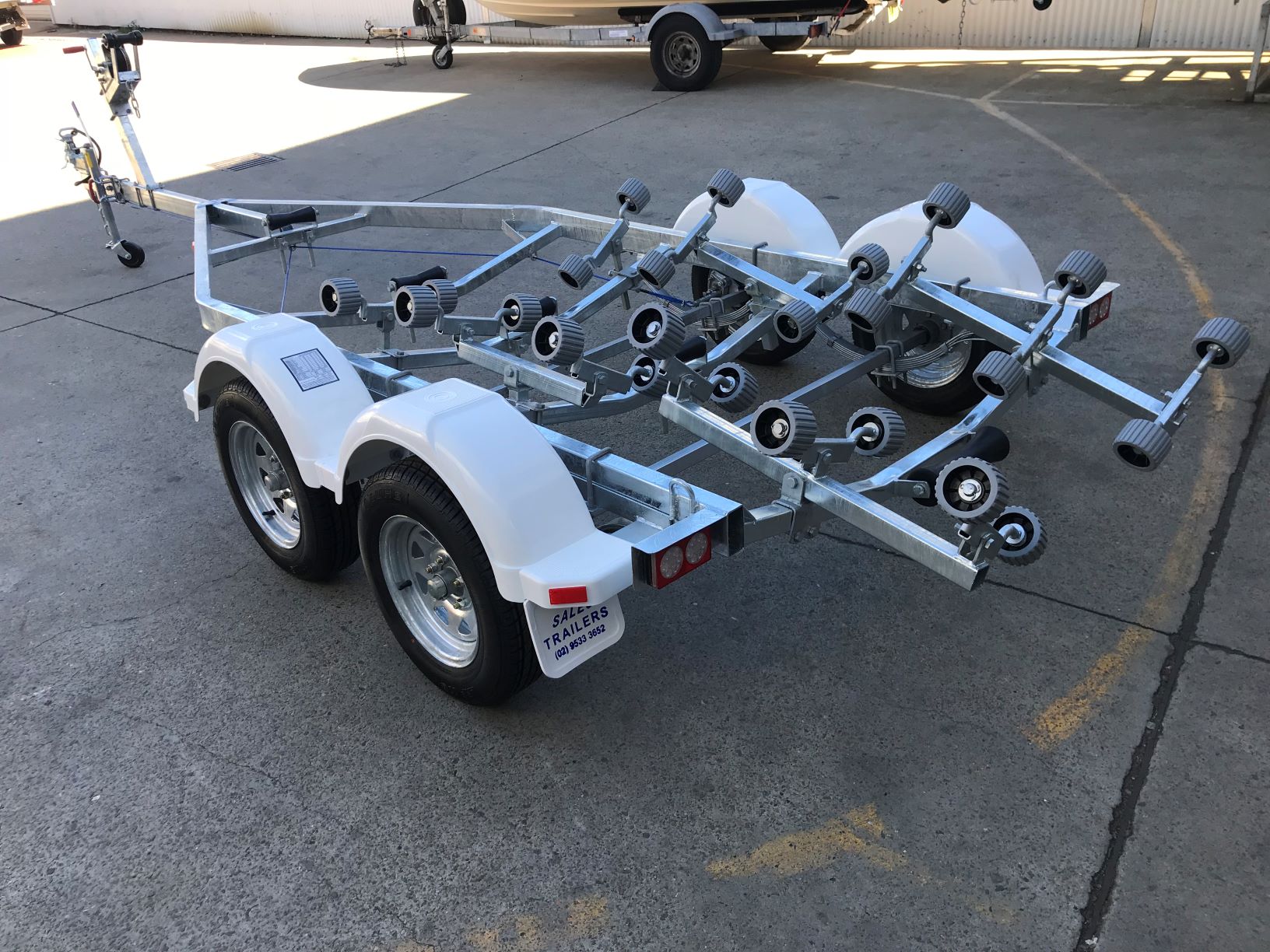The Right Wheels for Your Trailer
Blog | December 18th, 2020When it comes to trailer wheels, one size does not fit all. Our guide will help you find the right ones.

As long as they go round, you might not give much thought to your trailer’s wheels until it’s time to replace them. Here’s what you need to know.
Will a bigger tyre give you more traction? Are aluminium trailer wheels better than steel? Alloy wheels are light and rustproof but brittle, whereas steel can be beaten back into shape if it gets damaged off-roading.
Trailer tyre sizes vary, but each tyre should be the same type, size and construction. Check the trailer’s certification label or owner manual for the right size, type and load range.
A Weighty Issue
By law wheels and tyres must be adequate for the loads they carry and the speeds at which they are to be towed. So whether you’re carrying camping gear, a boat or horses, you’ll need to know your trailer’s ATM and tare. Overload can lead to overheating, causing accelerated wear or a blowout.
If the trailer is less than 10 years old, it will have a compliance plate indicating the maximum size rim and tyre size it can handle.
A Numbers Game
Tyres have different tread patterns, compounds, widths, sidewall sizes and speed ratings. The sidewall displays the brand, make and model, together with a series of numbers and letters, such as 165/60 R15 91H.
- 165: The section width of the tyre across its tread in millimetres.
- 60: This is the width of the sidewall. An off-road tyre will usually have a higher profile number, while a performance tyre will have a smaller profile.
- R15: Construction and rim diameter. The R means it’s radial and the 15 is the diameter of the rim in inches.
- 91H: This indicates the load index and speed rating of the tyre. The load rating (here, the number 91) shows the maximum load, in kilograms, the tyre can carry at the speed indicated by its speed symbol (here, the letter H).
Is Bigger Better?
If you’re planning on swapping out for some new, bigger or custom trailer wheels, here are a few things to consider:
- You’ll need to ensure they match the trailer hub.
- A larger rim and tyre size may actually place more stress on the axles and springs.
- If you replace the existing wheels with larger ones, the trailer might not sit level with your car, putting stress on the towball.
Check the Regulations
Towing a trailer that is non-compliant or unroadworthy has serious ramifications in an accident, so if you’re planning something outside the ordinary, check the rules set out in the National Code of Practice for Vehicle Modifications.
Any modifications, including fitting non-standard wheels or tyres, might also affect your insurance, so look over your policy before you start.
Buying new tyres for your trailer can be a complex issue. Unless you’re replacing the old ones with something similar, it’s worth talking to a tyre reseller about available options.
Your trailer’s wheel hubs are not just an accessory but a crucial part of its operation. Here are some things to consider.
